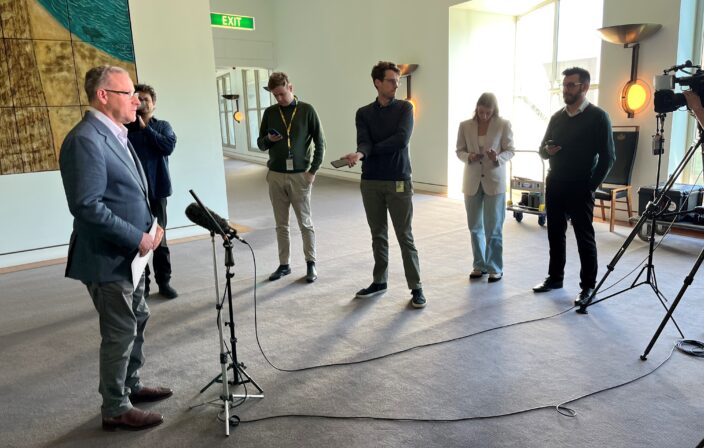Transcript: Sky News interview with ACCI CEO Andrew McKellar
26 Aug 2024
|Media Release

Event: Sky News interview with ACCI CEO Andrew McKellar
Date: Monday 26 August 2024
Topics: Changes to the workplace coming into effect today including the ‘right to disconnect’
E&OE
Cheng Lei (Host):
Joining me live is the Australian Chamber of Commerce and Industry Chief Executive Andrew McKellar for some discussion. Hi there Andrew. Thanks for coming on the show. What’s the business community’s reaction to this?
Andrew McKellar:
Hi Lei, great to be with you. Look, I think from a business point of view, we think it’s unnecessary. We really think this is a solution that’s in search of a problem in the first place. A lot of this could be dealt with through commonsense. We don’t think we needed to have legislation here for this. We are concerned about the productivity impact, and we are concerned about the impact eventually on small business. So I think as was mentioned initially this will apply to businesses with 15 employees or more in a year’s time. Of course, everyone will be roped in. So small business in particular, very small business, it’s going to have an impact further down the line. So that’s our concern.
Cheng Lei:
Are you hearing anything positive at all from employees in general in industries where they might feel that their work-life balance is not optimal?
Andrew McKellar:
Well, that of course is important and I think there’s a responsibility on all businesses to manage the way that they interact with their employees in a responsible way, in a common sense way. We think that that can normally be done. It would be quite exceptional, I think, to be getting into a situation where you would have to normally get to the point where you are regulating as the government has chosen to do so. If we look around the world, if we see what’s happened in other countries, I mean, one prominent example is France, and in fact in France, what they’ve done when they introduced laws like this, there was a threshold of 50 employees. So if you had more than 50 employees, it would apply to you. Under that level, it didn’t apply. We think that would be a much more sensible approach here if it’s needed at all.
Cheng Lei:
And how have these regulations worked around the world? Have they been effective? Have they effected productivity?
Andrew McKellar:
Well, I think in general they are ineffective. And I think our concern is in an environment where increasingly people want to work in a more flexible way, many people want to have some period of time if they can, where they’re working outside of a structured workplace. We think this is going to make it much harder to manage those sorts of relationships in the future. As well, businesses are going to have to put in place new policies, develop those policies. They’re going to have to look at their employment agreements, workplace agreements, rewrite those contracts. That all takes time, that takes effort. Effectively we’re ending up with a situation which is much more structured, much less flexible, and we run the risk that it’s really going to be the lawyers who will win out of this exercise, not the businesses, not the employees.
Cheng Lei:
Is it going to make it harder for middle management and also HR departments to manage this?
Andrew McKellar:
Oh look, I think it means that everyone’s got to adjust. So there will be a period of uncertainty now, we’ve got the legislation, we’ve seen that it really swings on this term of what is reasonable, what is unreasonable. There’s no real clear guidance about what that is. We’re seeing the similar sort of provisions mirrored in awards around the country. But really until we start to see some claims coming through the commission, some test cases in the commission or even in the courts, we won’t fully understand exactly where that boundary is going to be.
Cheng Lei:
Yeah, you’re so right, Andrew. It’s all about the subjective definition of reasonableness. I mean, in news, I was talking to a coworker just now and we expect, or we want to be in the news circle all the time. So it all depends which industry you’re in, I guess. And what about our global competitiveness for Australia?
Andrew McKellar:
Oh look, I mean here, this is a big issue and I think it’s kind of the forgotten variable. I think really what the government has done here, and it’s not just right to disconnect, but there’s a range of changes coming into force today. Changes to casual employment, changes in the definition of employment, impacting the boundary between an employee and an independent contractor. Changes which affect, so-called employee like workers in the gig economy, an area of innovation in the road transport industry. So all of these things really go to the heart of the issue of how do we drive productivity in the future? If you look at our record over the past few years, it’s been negative or flat. We’ve had zero productivity in the last 12 months. We need to address that fundamental issue if we are going to be globally competitive.
Cheng Lei:
Thanks so much for your time. Great talking to you. Andrew McKellar, Australia Chamber of Commerce and Industry Chief Executive.


